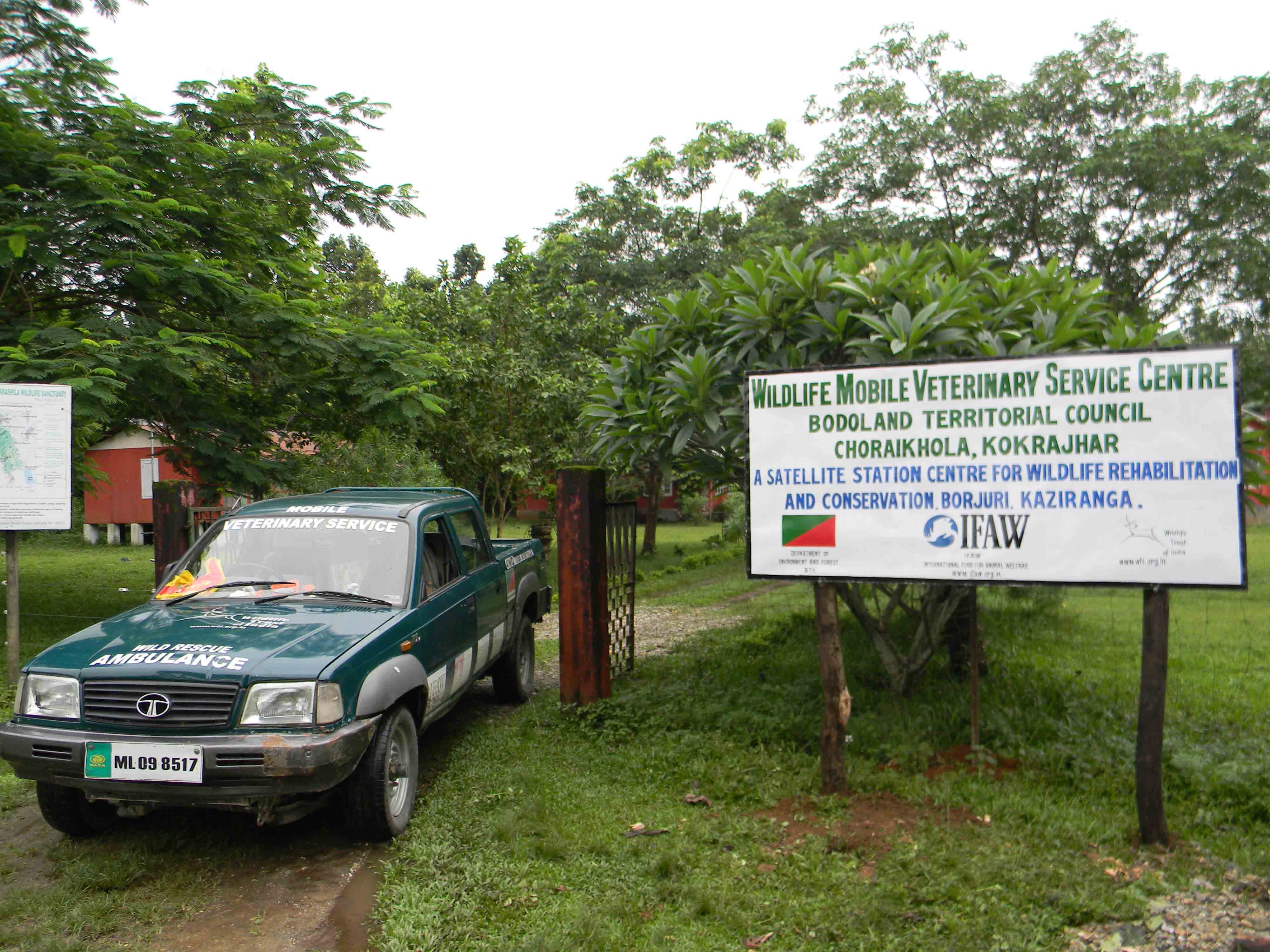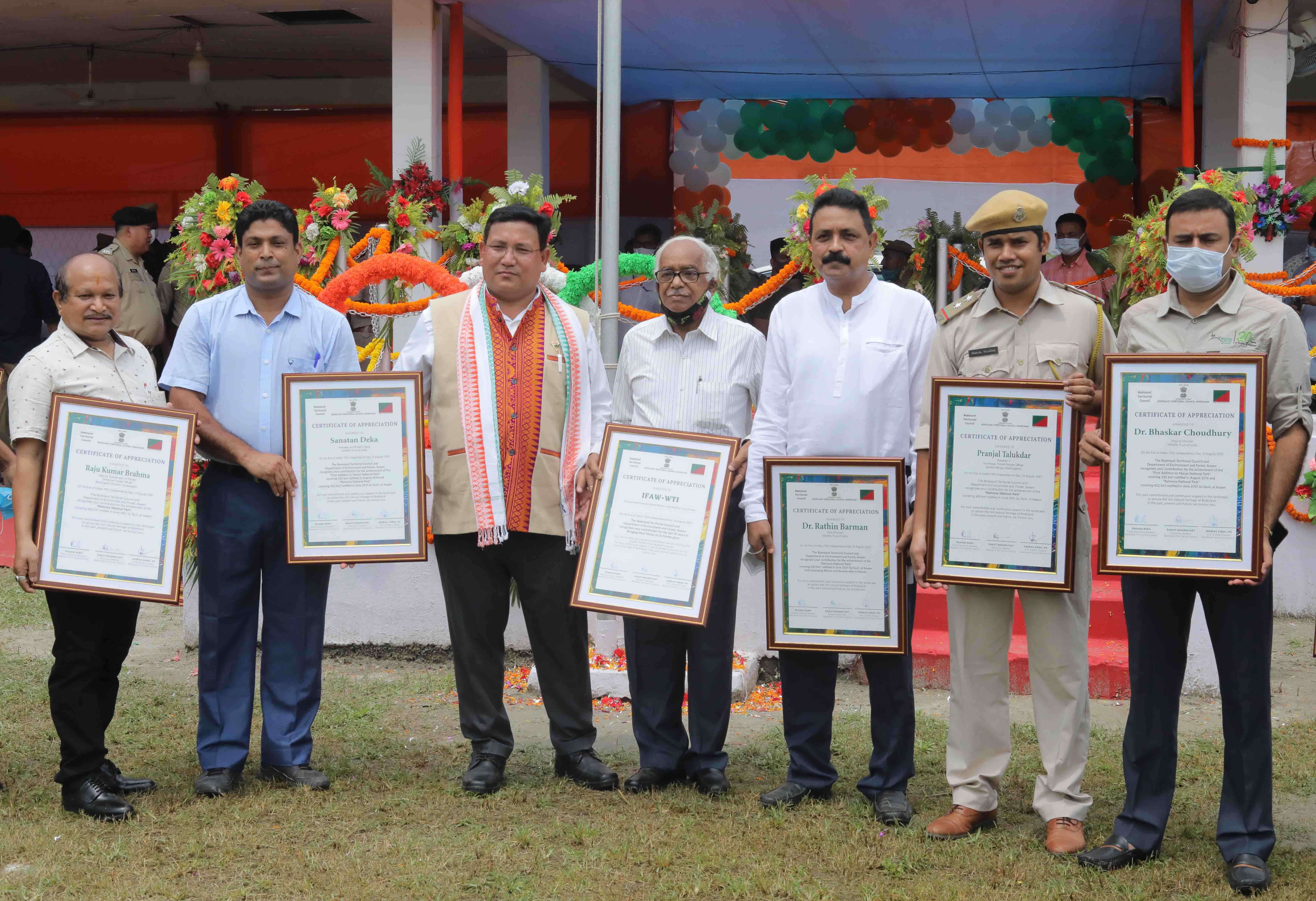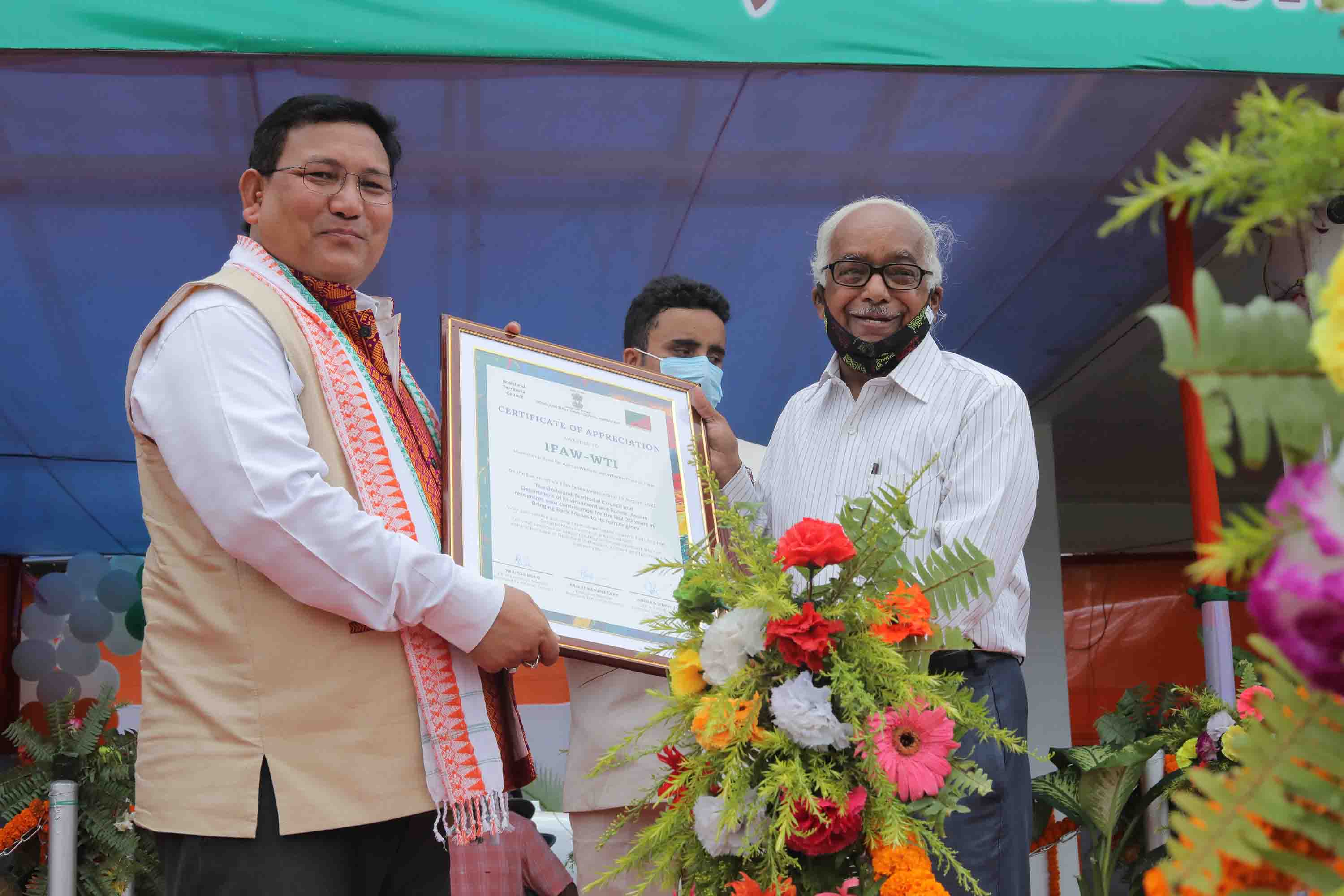15 August 2021, Kokrajhar: On the occasion of the 75th year of Indian independence, the Bodoland Territorial Council (BTC) organized a felicitation ceremony to recognise all individuals and organizations that have played a role in the region’s development. At a special event, Hon’ble Chief Executive Member of Bodoland Territorial Council, Shri Pramod Boro awarded certificates of appreciation to WTI and its partner IFAW for their long-term commitment and impactful work towards Bringing Back Manas to its former glory. The institutional recognition was formally received by Vice Chair and Trustee WTI, Prof. P C Bhattacharjee. Individual team members from WTI also received a Certificate of Appreciation from the Hon’ble CEM during the special event.

WTI’s team of veterinarians, biologists, social scientists and policy advocates, with support from Bodoland Territorial Council and the Assam Forest Department, have been tirelessly collaborating with local Community based organisations in matters ranging from community development to protected area recovery. This has resulted in the increase in protected area network by adding 772 sq km of land to the Protected Area Network in Bodoland Territorial Region (BTR) in the last decade that includes the First Addition to Manas and Raimona National Park.
More land under Protection
On the eve of this year’s World Environment Day, the newly elected Chief Minister of the Government of Assam, Dr Himanta Biswa Sarma declared the notification of Raimona National Park (gazetted 9th June, 2021) in BTR. IFAW-WTI has been working in this area since many years now where the iconic rehabilitation of clouded leopard cubs was done. The new national park, Raimona National Park was formerly known as the Ripu Reserve Forest. This is a significant conservation success for the Greater Manas landscape. It had taken 15 years of consistent conservation action by IFAW-WTI for this milestone to be achieved.

Sustainable livelihood for Community
When the world went into lockdown in 2020, it adversely affected the livelihood of many. The worst affected were fringe communities across the country. In Bodoland, WTI came up with measures to support these families that allowed them to work from their homes. The idea was to encourage Bodo women leverage their traditional skills in especially weaving and handloom. 250 families were supported with training, raw materials and financial incentives, allowing them a decent monthly income of around 10,000 INR during lockdown.
Community conservation of Iconic species
Back in 2018, WTI initiated the “Golden Langur Habitat Conservation” project in the Chirang Reserve Forest landscape. This was a one of a kind of project that was led by fringe villagers in a 23 sq km area of the forest. A critical habitat for the golden langurs, also the mascot for the Bodoland Territorial Council, these forests have since been set aside conservation area by the villagers, giving consent to its legal protection. As a result, there have been increased sightings of the golden langurs in the area and their numbers have believed to have considerably increased.
Enforcement and Legal Assistance
WTI has also been extending working towards securing the Bodoland landscape through legal interventions and enforcements. Regular anti-snare walks with the forest patrolling staff curbs hunting and a highly alert crime control cell guards against instances of poaching and other wildlife crimes. We have also been equipping forest staff with the necessary field gear including the manual on India’s Wildlife (Protection) Act, 1972 to be well prepared for their duties and the challenges it comes with. Wildlife conservation is a multi-faceted field of work and its success in landscapes like Manas relies on consistent engagement of all stakeholders, political support and perseverance.

While these highlights are the tip of the iceberg of WTI’s work in the Greater Manas Landscape, this recognition paves the way for an encouraging future. While conservation impacts take time, the support and trust bestowed by the BTC and the community will strengthen our continued work in securing the rich natural heritage of the landscape.